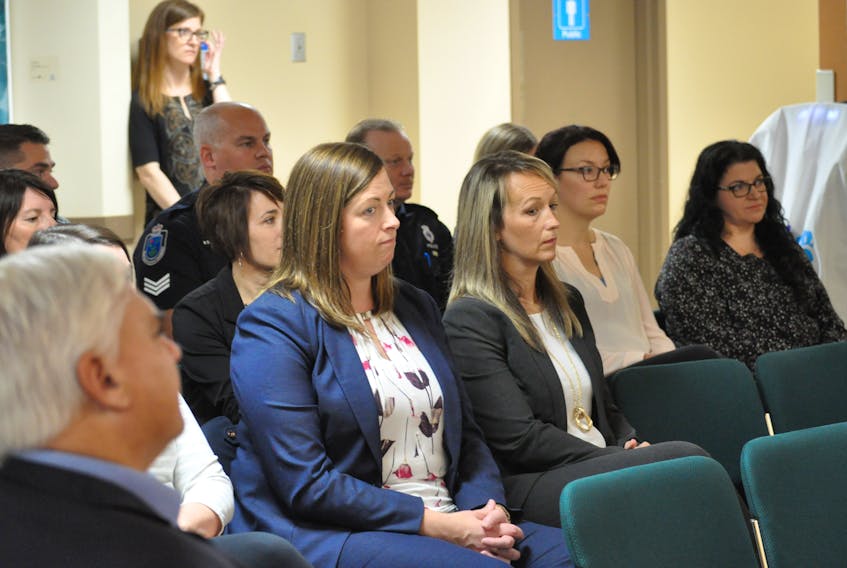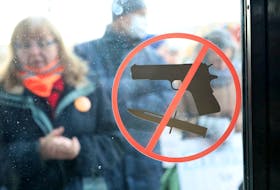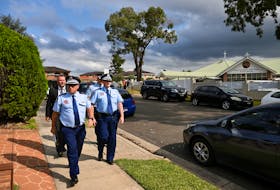Over the past five months there’s been a shift in how emergency calls related to mental health are being dealt with in the Corner Brook area through the operation of a mobile crisis response team.
Made up of police officers, nurses and social workers, the team provides the first response for mental-health calls.
Const. Amy Sharpe is one of two Royal Newfoundland Constabulary officers on the team operated by the force in partnership with the province and Western Health.
Sharpe, along with fellow team member Const. Shawna Park, was present at Western Memorial Regional Hospital Monday as officials with the provincial government, Western Health, and its team members, and the Royal Newfoundland Constabulary spoke at a launch event for the team that was formed in April.
As part of the team, Sharpe and Park and other officers at the Corner Brook detachment have received training in dealing with mental-health calls. This means that, if the team is active at a call or one comes in outside of its daily hours of operation — 10 a.m. to 10 p.m. seven days a week, that another member on duty is equipped to attend the call and will provide the team with a referral for follow up.
The team is called out through the RNC dispatch and either Sharpe or Park will respond, in plain clothes and in an unmarked vehicle, along with a clinician — either one of the two nurses or two social workers who make up the team. They’ll attend to the location of the call, more often than not a residence, and then conduct an assessment of the person involved.
Sharpe said the training they have received has equipped them to answer questions and better understand some of the behaviours that they’re seeing on these sensitive calls.
“We’re not just going out blind.”
They’re also often better-equipped with knowledge of those involved as they can access information, both from a police and health perspective, on the person before they get there.
“So, it gives us that extra information that we can use to make our judgements on the calls," said Sharpe. "And when we’re talking to someone we have a bit of knowledge, and understanding and a bit of insight into their own situations.”
Janet Sweetapple is one of the registered nurses on the team. She said having that insight is beneficial to the response.
“It totally changes the picture of how the police would interact with this person,” she said.
With the nature of the response being somewhat private, Sharpe said this helps to eliminate the stigma of mental-health calls as the people calling don’t want the police.
“They’re looking for help and the people who can help them are the health-care providers," she said. “I think this has kind of shifted the nature of the mental-health calls back to Western Health, which is where we want them to be.”
From a clinical point of view, Sweetapple said it’s nice to get them in their own environment.
“And you see how they’re living with whatever is going on and the situation that they’re having," she said. "We’re seeing them at the moment the crisis is going on."
Since May, the team has responded to about 160 calls, with an average of 40 a month.
Many are related to suicide, people experiencing suicidal ideation or who have a plan that they just haven’t acted on, or from people who are feeling down or depressed and who reach out before they get to that point.
What happens on a call depends on the situation, said Sharpe.
“They may not necessarily need to come to the hospital at the time, but we may be able to connect them with the right service for them.”
Corner Brook’s mobile crisis response team is on the front line for mental-health calls

STORY CONTINUES BELOW THESE SALTWIRE VIDEOS








